Reaching customers in urban localities is both convenient and feasible for a bank. With innumerable customers, the multiple branches of a bank and its ATMs can generate enough ROI to cope with the high CapEx and OpEx. However, banks have exhausted the urban areas as most of the households have multiple personal accounts leading to limited number of potential customers.
On the contrary, rural areas are the untapped market for the banks. Furthermore, opening branches and ATMs in rural areas can be an expensive affair for many financial institutions as numerous still rely on cash for all transactions. Therefore, due to lack of adaptability and awareness in rural areas, tapping the rural market may not be profitable for a bank.
By implementing a well-structured agent management solution, banks can scale the reach of their services and maximize their market share. Acting as ‘proxy banks’, these agents are also promoting local development and economic growth as individuals and small businesses have access to the essential financial services.
5 Unconventional Benefits of Agency Banking
According the World Bank’s Global Findex Database, in the year 2017, 1.6 billion people and 200+ million MSMEs around the world did not have access to basic financial services. Banks play a pivotal role in reducing this number and aid financial inclusion for the country. Agency Banking is the most sought-after way for banks to reach out to the rural people with ease. Apart from the cursory benefits, agency banking has other unnoticed pros too. Let us look at the 5 unconventional benefits of Agency Banking.
Brand Awareness in Untapped Areas
Agency banking puts a marketing strategy in motion for the banks which makes the brand human and familiar. The strategy is implemented by banks through the network of agent shops set up close to customers at a very low cost. Similarly, through a trusted agent in the vicinity, the bank brand becomes acceptable which ensures safety to the customers in rural areas.
Availability of Data for Potential Innovation
With increase in rural population that indulges in banking through agents, banks get the opportunity to gather unconventional data based on customer transactions and purchase habits. Transaction behaviour of people in remote areas can be completely different from that in urban regions. Thus, the gathered data can be used to create unique financial products for both end customers as well as agents.
Personal Privileges
Customers in remote areas are still reluctant in utilizing financial services. Banks must go completely out of the way to develop a relation with the rural customers and assure them safety and educate them of the benefits too. This is simplified with the help of agents as this method of banking either takes place at nearby shop or at their doorstep. Adopting the agency model allows banks to have known agents offer personalized banking services to the customers while exchanging pleasantries and discussing matters of mutual concern.
Easy Platform for Technophobic
Due to the lack of resources, people in remote areas are usually technophobic. A personalized support in banking transactions from a known agent can provide comfort and faith in the mind of a customer. The agency banking platform allows agents cash-in and cash-out from customer’s digital wallets with various business rules. Agent banking brings financial services to the underserved and unbanked populations, through mobile phones enabled with agent management system, PoS (Point-of-Sale) terminal, card readers and other technology for processing of real time transactions.
Superior Customer Experience
Agency banking provides a superior customer experience to the rural customers as it has brought banks to the doorsteps of users. The clients can simply visit their agents which are located at their proximity instead of waiting in long bank queues or traveling to the bank. Without any formal ID or biometric, users can perform important banking operations such as withdrawing or depositing funds, paying bills, loan payments, and many more through their agents.
Catalyzing Financial Inclusion with Agency banking
Banks are combating this issue with the help of a system led by agents in such remote areas. With the support of agency management systems, third-party agents perform transactions on behalf of financial institutions and enable customers to translate e-money to physical cash for use. This method of banking is not only beneficial to the banks but also the economy as it promotes financial inclusion helping governments to reach out to the rural/underserved areas in the times of crisis.
Banks can implement agency banking through an agent in remote areas in 3 different ways:
- Through kiosks set up in remote/rural areas
- Through an individual who makes doorstep visits in rural areas with a handheld device equipped with an agent management system to perform banking transactions
- Through supermarkets / retailers / post offices / NGOs / specialized microfinance institutions (MFIs), and so on in remote areas
Read Also
Agent Banking: Transforming the Banking Industry
Why is Agency Banking the Silver Bullet for Financial Inclusion?
Facilitating Financial Inclusion through Agency Banking
Agent Management Solutions- A Win-Win for Everyone
Agency banking is transforming banking industry across the globe. Automation in banking through agent management solution, is increasing the reach of the banks many folds. Banks are also empowered to offer services to a person irrespective of his location. Customers are now able to utilize the benefits of banking at the convenience of their homes. And finally, the agents are finding an extra source of earning and are motivated to contribute towards a growing economy.


















